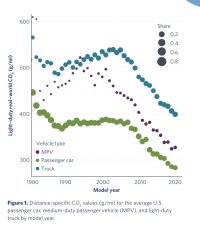Cat Fan
Cats and stats
Most houses have at least one car, I'm pretty sure given the choice between a very insecure shed on the main street vs a parking space the parking space would win.Only because that space is shared exclusively between car owners instead of between everyone.
If anyone could pay £100 a year for an SUV sized storage shed on their street, I bet the level of demand would look different.
I pay about £50 a year for a space in one of those bike hangars. The hangar takes one car parking space and can store 4 or 5 bikes. I would pay more than that.
I would ideally limit parking spaces to two per household but I don't make the rules



